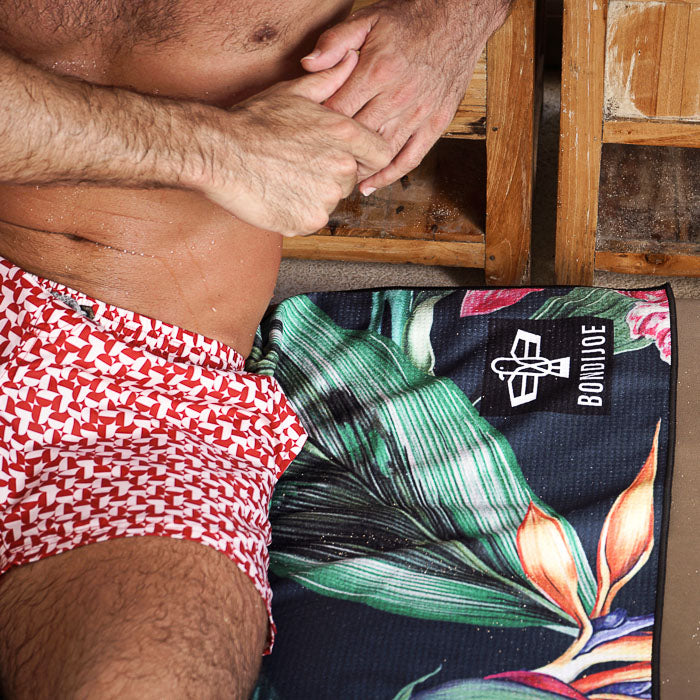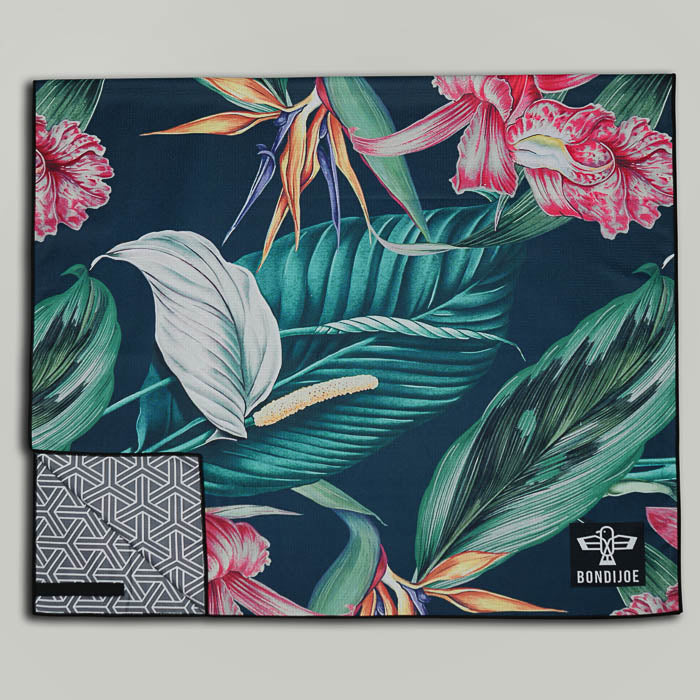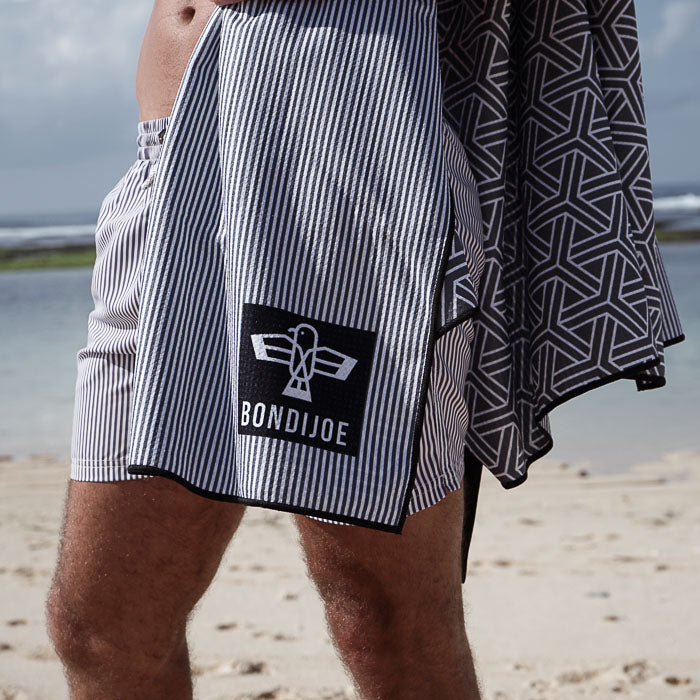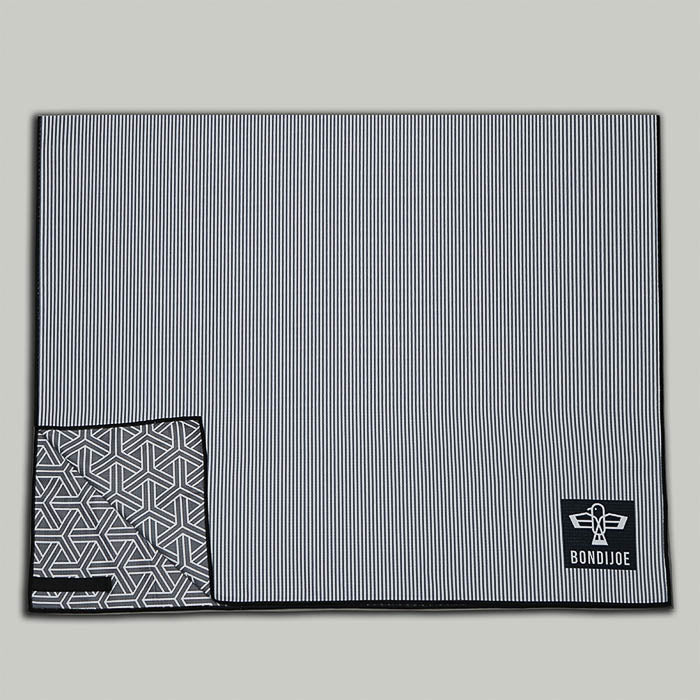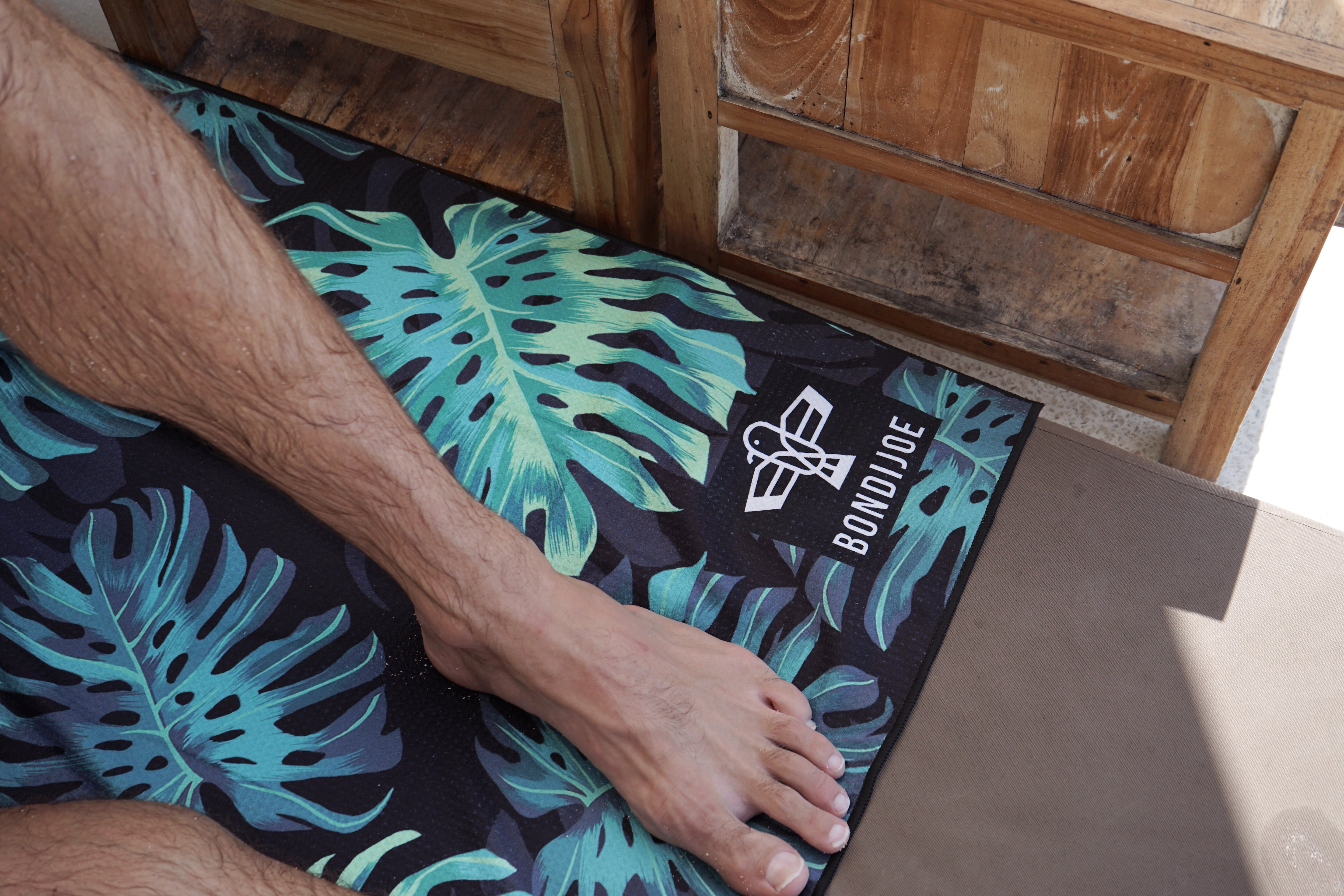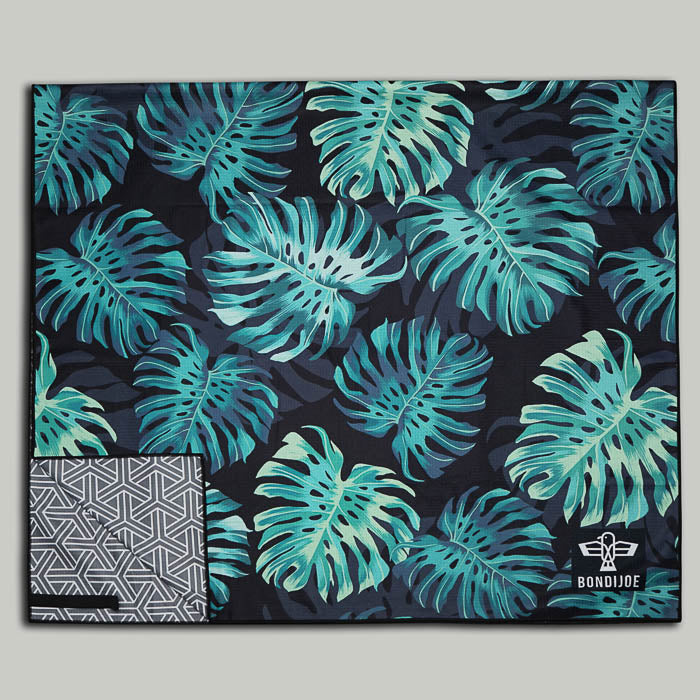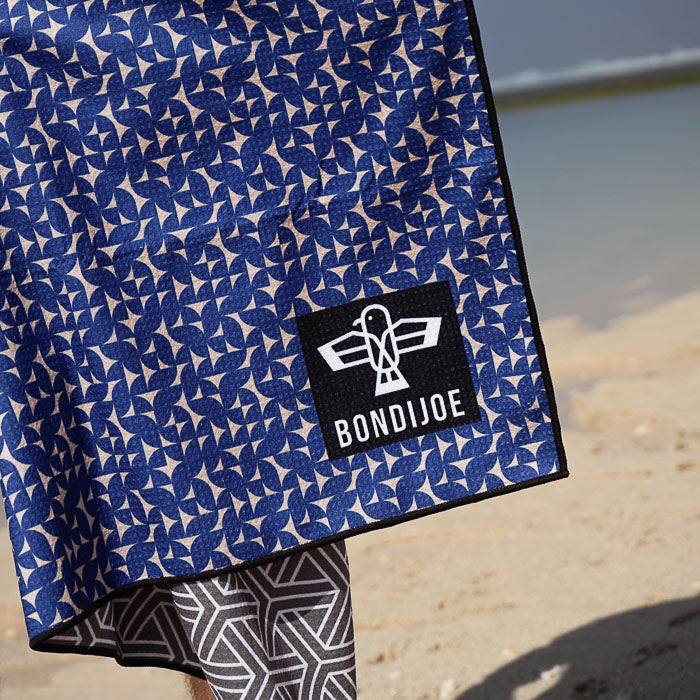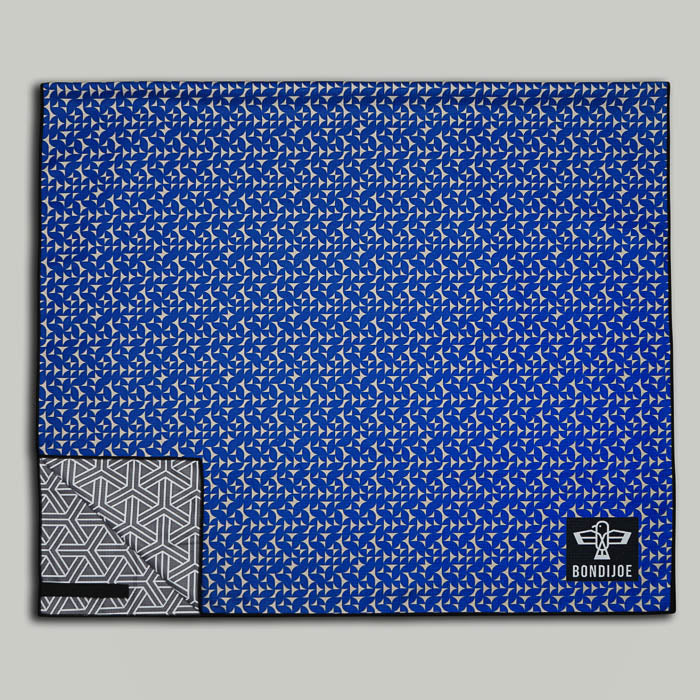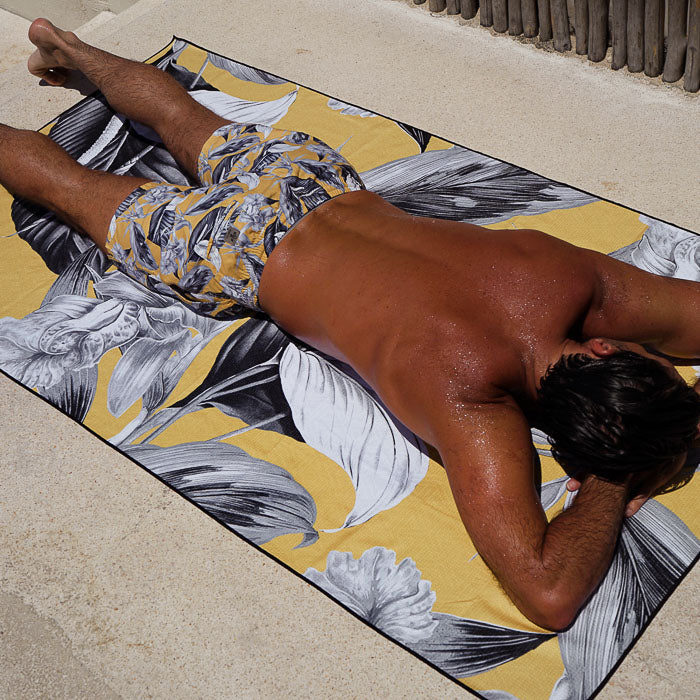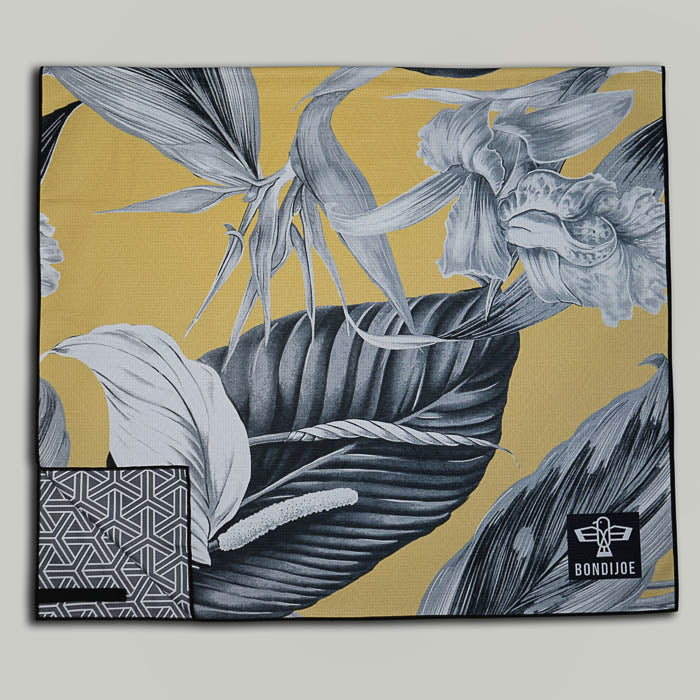Beach towels are essential for any trip to the shore, and choosing the right one can make a big difference in your comfort and convenience. Microfiber beach towels have gained popularity in recent years, but are they better than traditional cotton or other material towels? This article explores the benefits and drawbacks of microfiber beach towels to help you decide if they are the right choice for your beach adventures.
What are Microfiber Beach Towels?
Composition
Microfiber is a synthetic material made from a blend of polyester and polyamide (nylon) fibers. These fibers are incredibly fine—thinner than a strand of silk—which allows microfiber towels to have unique properties that set them apart from traditional towels.
Texture
Microfiber towels are typically smooth and soft to the touch. The fine fibers create a dense weave that feels different from the plushness of cotton but still offers a comfortable experience.
Advantages of Microfiber Beach Towels
Quick-Drying
One of the most significant advantages of microfiber beach towels is their quick-drying capability. Microfiber can dry up to three times faster than traditional cotton towels, making them perfect for beach outings where you might need to use the towel multiple times in a day.
Benefits:
- Convenience: No more lugging around a heavy, wet towel.
- Hygiene: Quick drying reduces the chance of mold and mildew growth.
- Travel-Friendly: Ideal for packing away without worrying about moisture.
Lightweight and Compact
Microfiber towels are much lighter and more compact than their cotton counterparts. They can be folded or rolled into a small size, making them easy to pack and carry.
Benefits:
- Portability: Great for travelers, hikers, and anyone on the go.
- Space-Saving: Leaves more room in your beach bag for other essentials.
- Ease of Use: Light enough for kids to carry.
High Absorbency
Despite their lightweight nature, microfiber towels are highly absorbent. They can hold several times their weight in water, allowing you to dry off quickly and efficiently.
Benefits:
- Efficiency: Dries you off faster, saving time and effort.
- Performance: Stays effective even when damp.
Durability
Microfiber towels are durable and resistant to wear and tear. The synthetic fibers do not break down as quickly as natural fibers, ensuring a longer lifespan.
Benefits:
- Cost-Effective: Longer lifespan means less frequent replacement.
- Reliable: Stands up to frequent use and washing.
Sand Resistance
Another appealing feature of microfiber beach towels is their resistance to sand. The tight weave of the fibers prevents sand from sticking, making it easy to shake off before packing up.
Benefits:
- Cleanliness: Keeps your towel and belongings sand-free.
- Comfort: No more gritty towel experiences.
Disadvantages of Microfiber Beach Towels
Feel and Comfort
While microfiber towels are soft, they do not have the same plush feel as high-quality cotton towels. Some people prefer the thicker, more luxurious texture of cotton.
Drawbacks:
- Texture: May feel less luxurious and soft compared to cotton.
- Preference: Might not satisfy those who prefer the traditional feel of cotton.
Heat Sensitivity
Microfiber is more sensitive to heat than cotton. High temperatures can damage the fibers, affecting the towel’s performance and longevity.
Drawbacks:
- Care: Requires careful washing and drying at lower temperatures.
- Durability: Potential damage if exposed to high heat.
Environmental Concerns
Microfiber towels are made from synthetic materials, which raises environmental concerns. They are not biodegradable, and the production process involves chemicals and energy.
Drawbacks:
- Sustainability: Not as eco-friendly as natural fiber options.
- Microplastics: Potential to release microplastics into water systems during washing.
When to Choose Microfiber Beach Towels
Ideal Scenarios
- Travel and Camping: Their lightweight and compact nature makes them perfect for travel.
- Frequent Beach Visits: Quick-drying and sand-resistant features are ideal for regular beachgoers.
- Active Use: Great for sports, hiking, and other outdoor activities.
Who Should Consider Them
- Frequent Travelers: Those who need a portable and efficient towel.
- Families with Kids: Easy for children to carry and manage.
- Eco-Conscious Individuals: Those willing to balance convenience with environmental impact can look for brands that offer eco-friendly microfiber options.
When to Choose Traditional Towels
Ideal Scenarios
- Luxury and Comfort: When plushness and comfort are priorities.
- Home Use: Traditional cotton towels can be more suitable for use at home where portability is not a concern.
Who Should Consider Them
- Comfort Seekers: Those who prioritize the luxurious feel of thick cotton.
- Eco-Conscious Individuals: Those who prefer natural, biodegradable materials.
FAQs
1. Are microfiber beach towels more absorbent than cotton towels?
Yes, microfiber towels are highly absorbent and can hold several times their weight in water, often outperforming cotton towels in absorbency.
2. How do I care for my microfiber beach towel?
Wash in cold or warm water with a mild detergent, avoid fabric softeners, and tumble dry on low heat or air dry to prevent damage.
3. Are microfiber towels good for the environment?
Microfiber towels have environmental drawbacks due to their synthetic materials and potential to release microplastics. However, some brands offer eco-friendly options made from recycled materials.
4. Do microfiber towels feel different from cotton towels?
Yes, microfiber towels have a smoother, denser feel compared to the plush texture of cotton towels. Preference depends on individual taste.
5. Can I use a microfiber towel for other activities?
Absolutely! Microfiber towels are versatile and can be used for sports, travel, camping, and even as gym towels.
6. Do microfiber towels really resist sand?
Yes, the tight weave of microfiber towels makes them resistant to sand, which can be easily shaken off.
Conclusion
Microfiber beach towels offer numerous advantages, including quick-drying capabilities, lightweight and compact design, high absorbency, durability, and sand resistance. However, they may not provide the same luxurious feel as traditional cotton towels and come with environmental concerns. Whether a microfiber beach towel is better for you depends on your specific needs and preferences. Consider your beach activities, travel requirements, and personal comfort preferences to make the best choice for your beach outings. Check out our other guides to beach towel features.


